Latest news
DCS PhD Spotlight sessions 2022
As a consequence of the Covid pandemic, most of the scientific conferences and events have followed a short online format with few keynote talks in the program. While this has still allowed professionals and renowned scientific speakers to share their research, PhD students had less opportunities to present their work and get valuable feedback from the scientific community during their first steps in academia.
As it will still take some time to get back to the pre-pandemic situation in international traveling and face to face events, The Dutch Chemometrics Society would like to provide PhD students a platform to share their research around Chemometrics and related disciplines.
For this reason we are excited to announce the new DCS PhD Spotlight sessions, a series of free online seminars where PhD students will present their work.
The first Spotlight session will held on-line Friday April the 1st from 12:30-13:30 CET.
Program:
- Talk 1: Data integration of oral microbiome and metabolome data using PARAFAC, by Roel van der Ploeg (Swammerdam Institute for Life Sciences, University of Amsterdam)
- Summary: Dental plaque is a biofilm and an important indicator of oral health. Its formation is caused by the establishment of a local bacterial community that connects to the tooth surface using physico-chemical interactions. If not removed by good brushing, dental plaque can accumulate and mature, thus leading to the development of gingivitis: inflammation of the gums. In some people, the development of gingivitis goes much faster and to a greater severity than in others. However, not much is known about the link between gingivitis severity and the oral microbiome and metabolome. A cohort of 41 individuals were subjected to a two-week gingivitis intervention, in which they were not allowed to brush their teeth. Microbiome samples were taken at multiple sites in the mouth, before, during, and after the intervention period. Metabolome samples were collected from saliva only during the intervention period. Hence we have obtained two multiway datasets with modes in the individual, measured variable, and time directions. In this study, we aim to connect the microbiome and metabolome by searching for common patterns using PARAFAC, a multiway decomposition method. PARAFAC decomposes a dataset into components with a loading vector for each mode. By comparing these components between the microbiome and metabolome data blocks, we can search for commonalities for example in the time profile loading. This way we aim to find connections between microbial species and metabolites that show a similar response to the gingivitis intervention over time.
- Talk 2: Human milk proteins and allergy of mother and child: exploring differences at the univariate and network level, by Pieter Dekker (Department of Agrotechnology and Food Sciences, Wageningen University and Research)
- Summary: The human milk proteome comprises a vast amount of proteins with immunomodulatory functions, but it is not clear how this relates to an allergy of the mother or allergy development in the breastfed infant. In this study, we aimed to explore the relation between the human milk proteome and allergy of both mother and infant. We analyzed proteins in a selection of 300 human milk samples from the Canadian CHILD Cohort Study. In the analysis of the data, univariate, multivariate, and network analyses were employed to explore relations between the different groups of allergy statuses.
The session will be streamed online via Zoom platform, will last around 1 hour, and is free of charge. You do not need to register for this event. The Zoom link f will be shared the same day of the event via e-mail to all those who are subscribed to the Dutch Chemometrics Society mailing list. You can subscribe to the DCS mailing list here.
If you are a PhD student and want to present your work or if you are PhD supervisor and you think one of your student may be interested feel free to send us an email at
We hope you will join and help us put PhD students in the Spotlight again!
Second DCS PhD Spotlight session 2022
The Dutch Chemometrics Society (DCS) is excited to announce the second DCS PhD Spotlight session, in which the presentations will be related to NIR data analysis.
The second session will be held on May 12th (Thursday) from 12:30-13:30.
Program:
- Talk 1: Predicting the performance of handheld near-infrared sensors from a master benchtop device, by Mark Schoot (Radboud University Nijmegen, NutriControl Analytical Solutions)
-
Many industries see a shifting focus towards performing on-site analysis using handheld spectroscopic devices. Myriad handheld solutions with very different specifications and pricing are available on the market. Although specifications are generally available for new devices, this does not directly quantify or predict how available devices will perform for targeted cases. We present a novel chemometric method to estimate the prediction performance of handheld NIR hardware and apply it to estimate the performance of two commercially available handheld NIR technologies in predicting protein content in pig feed from existing data of a benchtop device. Our method utilizes information on the error structure of the handheld devices for the estimation. It yielded performance estimates differing less than 1 g kg-1 from the experimentally determined handheld performances and similar model parameters. Our method was effective for linear and nonlinear calibration algorithms, also when estimating performance after averaging multiple scans. Overall, our method provides estimates of the performance of a handheld device for a specific task with minimal testing required and can thus be used as a device or application screening tool before committing to develop calibrations.
-
- Material Fingerprinting in the Mining industry – Clustering of VNIR–SWIR and geochemistry data, by Jeroen van Duijvenbode (Delft University of Technology)
-
Within the mining industry, a lot of spectral and geochemical data is collected from rock samples to indicate the properties of the different styles of mineralization in an orebody. The quantity of these data increases rapidly during the daily operations of a mine since every one-meter composite sample is tested. This presentation will focus on interpreting these large (combined >250,000 samples) multivariate datasets using compositional data analysis, principal component analysis and clustering in two parts. The first part will focus on VNIR-SWIR data and the second part combines this with the geochemical data. Commonly, VNIR-SWIR data are analyzed by extracting specific absorption features, however, this way, not all potential value is extracted from the spectral responses, as will be shown. In this study, we clustered spectral range values and, using this found a new spectral feature region related to epidote not recognized before. Furthermore, within a spatial contextual relationship, it was found that this epidote feature also relates to the rock hardness, which is important during the crushing and grinding of rocks to extract gold.
-
The session will be streamed online via Zoom platform, will last around 1 hour, and is free of charge. You do not need to register for this event. The Zoom link will be shared the same day of the event via e-mail to all those who are subscribed to the Dutch Chemometrics Society mailing list. You can subscribe to the DCS mailing list here.
If you are a PhD student and want to present your work or if you are PhD supervisor and you think one of your student may be interested feel free to send us an email at
We hope you will join and help us put PhD students in the Spotlight again!
More about the DCS PhD Spotlight sessions
As a consequence of the Covid pandemic, most of the scientific conferences and events have followed a short online format with few keynote talks in the program. While this has still allowed professionals and renowned scientific speakers to share their research, PhD students had less opportunities to present their work and get valuable feedback from the scientific community during their first steps in academia.
As it will still take some time to get back to the pre-pandemic situation in international traveling and face to face events, The Dutch Chemometrics Society would like to provide PhD students a platform to share their research around Chemometrics and related disciplines.
For this reason we are excited to announce the new DCS PhD Spotlight sessions, a series of free online seminars where PhD students will present their work.
DCS Conference on Image Analysis in Medicine 2021
Tuesday 29 June 2021 - 14:00 CET
Zoom online meeting
The Dutch Chemometrics Society (DCS) is excited to announce a half-day free online conference on Image Analysis in Medicine. The conference will feature two experts on image analysis: Dr. Benjamin Balluff, Assistant Professor, Maastricht MultiModal Molecular Imaging institute (M4I), Maastricht University, the Netherlands and Dr. Leonard Wee, Assistant Professor, Clinical Data Science; Maastro Clinic, Maastricht, the Netherlands.
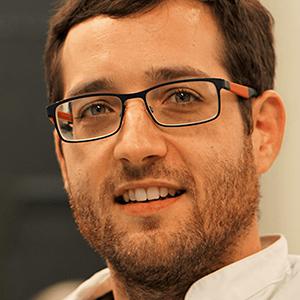
Benjamin Balluff studied bioinformatics at the Weihenstephan University of Applied Sciences, Germany. Afterwards he did his PhD at the Institute of Pathology, Helmholtz Zentrum Muenchen, Germany, to search for biomarkers in gastric cancer using mass spectrometry imaging (MSI). During his PostDoc time at Leiden University Medical Center he focused on the analysis of MSI data to describe intra-tumor heterogeneity. In 2015, he became Assitant Professor for Imaging Bioinformatics at Maastricht University where he strives for advancing MSI in terms of single cell analyses and integration with other omics technologies.
Talk title: Data analysis in Mass Spectrometry Imaging.
* * *

Leonard Wee is qualified and accredited radiation oncology medical physicist, presently assistant professor in Clinical Data Science at MAASTRO Clinic/UM/MUMC+. His current research question involve use of large scale and geographically dispersed clinical medical imaging data (such as CT, PET and MRI scans) derived from real-world cancer cases to develop prognostic and predictive clinical outcome models.
Talk title : Using large-scale imaging data for quantitative analysis
Conference Registration
To register to the conference please subscribe at the maiiling list of the event at the bottom of the page! Participation is FREE.
The conference will be held through the Zoom online meeting platform. The link to the Zoom event will be shared on the date of the event.
Credits and certificate of attendance
For (PhD) students: this conference is worth 0.3 ECTS credits. Instruction on how to obtain the certificate will follow.
Sponsor
This event is kindly sponsored by the Institute for Molecules and Materials of Radboud University.
DCS Conference on Image Analysis in AgroFood Industry 2021
April 13, 2021
Zoom online meeting
14.00 (CET)
The Dutch Chemometrics Society (DCS) is excited to announce a half-day free online conference on Image Analysis in AgroFood Industry. The conference will feature two renown experts on image analysis: José Manuel Prats-Montalbán and Puneet Mishra.
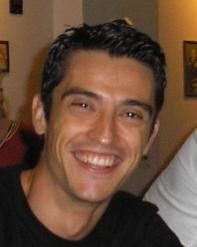
José Manuel Prats-Montalbán is Associate Professor at the Department of Applied Statistics of the Polytechnic University of Valencia (UPV) since 2010. He finished his studies in Industrial Engineering in 1998, joining the labor market as a quality engineer and consultant in quality systems. In 2000, he joined the Polytechnic University of Valencia, finishing his Ph.D. Thesis "Statistical Control of Processes by means of Multivariate Analysis of Images" in September 2005, under the supervision of Professor Alberto Ferrer. This thesis constitutes the basis of his research lines in multivariate analysis of images, related to Magnetic Resonance Medical Image Analysis and Image Analysis for Industry 4.0. At the DCS conference he will talk about “Multivariate Image Analysis: basics and applications in AgroFood Industry”.
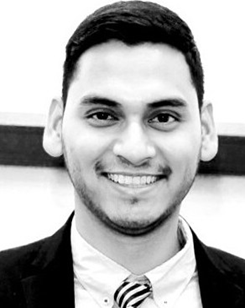
Puneet Mishra works as a researcher in advanced sensing technologies and chemometrics at Wageningen Food and Biobased Research, The Netherlands. He holds a PhD in pure and analytical chemistry from the center for process analytics and control technologies (CPACT), UK. During his PhD, he was a Marie Curie Fellow for the H2020 ITN called ‘MODLIFE’ which aimed at developing advanced data modelling tools for process and product industries. He has more than 42 research articles. He has won several prestigious awards in the domain of process analysis and chemometrics. Recently, he won two times in the row i.e. 2020-2021, the young chemometrician award from the ‘French Chemometrics Society’. His interest includes non-destructive sensing, chemometrics and artificial intelligence. He is looking forward to welcoming you to his talk on “Close range hyperspectral imaging of agricultural plants”.
Conference information
The conference will be held through the Zoom online meeting platform. The link to the Zoom event will be shared after registration. To register, please send an email to our secretary Lidia Esteve Agelet via
A detailed program for the conference is available here.
Credits and certificate of attendance
For (PhD) students: this conference is worth 0.3 ECTS credits. If you require a certificate of attendance, please let us know during the registration phase.
Sponsor
This event is kindly sponsored by the Institute for Molecules and Materials of Radboud University.
DCS Masterclass on Data Visualization
November 12, 2019
Bar Beton, Utrecht Central Station
The Netherlands
The Dutch Chemometrics Society (DCS) cordially invites you to a DCS Masterclass on Data Visualization! The Masterclass will feature two renown plenary speakers from the data visualization field: Casper Albers and Sara Sprinkhuizen.
 Casper is a professor at Rijksuniversiteit Groningen in applied statistics and data visualization. His research focuses on statistical modelling of psychological processes, applied in clinical psychology and environmental psychology and on the interplay between statistics and science communication. He has over 50 peer reviewed papers, has given numerous lectures and workshops and occasionally writes scientific columns for Dutch newspaper De Volkskrant. Casper will mainly speak about a theoretical basis for multivariate data visualization (e.g. biplots).
Casper is a professor at Rijksuniversiteit Groningen in applied statistics and data visualization. His research focuses on statistical modelling of psychological processes, applied in clinical psychology and environmental psychology and on the interplay between statistics and science communication. He has over 50 peer reviewed papers, has given numerous lectures and workshops and occasionally writes scientific columns for Dutch newspaper De Volkskrant. Casper will mainly speak about a theoretical basis for multivariate data visualization (e.g. biplots).
 Sara is a freelance data analyst and data visualization expert. After having studied physics, she got intrigued by data visualization because proper data visualization can strongly contribute to get complex messages across. She is currently active as data analyst, data visualizer and consultant for multiple international companies and research institutes, including MIT Media Lab, the online newspaper De Correspondent, the Dutch medical journal Nederlands Tijdschrift voor Geneeskunde, and the Màxima Medical Center in Eindhoven. Sara's talk will mainly focus on perceptional and aesthetic aspects of data visualization.
Sara is a freelance data analyst and data visualization expert. After having studied physics, she got intrigued by data visualization because proper data visualization can strongly contribute to get complex messages across. She is currently active as data analyst, data visualizer and consultant for multiple international companies and research institutes, including MIT Media Lab, the online newspaper De Correspondent, the Dutch medical journal Nederlands Tijdschrift voor Geneeskunde, and the Màxima Medical Center in Eindhoven. Sara's talk will mainly focus on perceptional and aesthetic aspects of data visualization.
Two experts in data science and chemometrics will challenge the talks to trigger discussion. Renger Jellema (senior scientist at DSM Biotechnology Center, The Netherlands) and José Camacho (Associate Professor in the Department of Signal Theory, Networking and Communications at University of Granada, Spain) will take up the challenger role.
Date, time, location
The Masterclass will be held on November 12, 2019 at Bar Beton in Utrecht. Bar Beton is conveniently located at Utrecht Central Station and can thus be very easily reached by public transport. The masterclass starts at 09.30 hrs and ends at 16.00 hrs, followed by some drinks and snacks.
Registration and fee
Registration is done on a first come, first serve basis. We can accomodate at max 40 people, so make sure that you register in time! To register, please send an e-mail to our secretary Lidia Esteve Agelet via i
Deadline for registration: October 20, 2019
Detailed program
Click here (pdf file) to take a look at the detailed program of the day.
Credits and certificate of attendance
For (PhD) students: this course is worth 0.3 ECTS credits. If you require a certificate of attendance, please let us know (see below for contact details). We will make sure that your certificate is ready on they day of the event.
More information
You can contact our secretary Lidia Esteve Agelet via i
Sponsor
This event is kindly sponsored by the Institute for Molecules and Materials of Radboud University.
31st Annual Chemometrics Symposium 2018
“Theme of This Year”
Wednesday October 24, 2018; Utrecht, The Netherlands
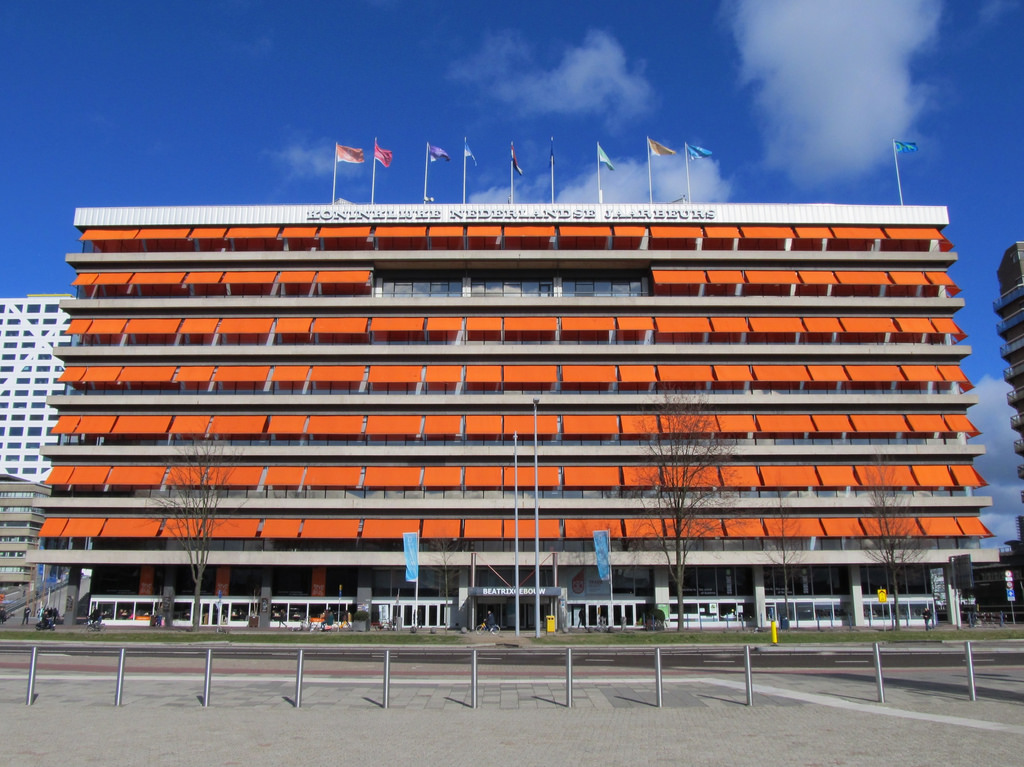
The Dutch Chemometrics Society cordially invites you to its Annual Chemometrics Symposium. This year the theme is “THEME” with a focus on practical applications. [NUMBER] speakers will cover a variety of subjects.
As usual, this symposium is an excellent opportunity to meet old and new colleagues, to learn about new developments in chemometrics and related fields and to discuss them in an informal and friendly atmosphere.
Speakers with their presentation titles [FROM 2016 STILL]
• Rudolf Kessler
“Perspectives in Process Analysis: Remarks on Robustness of Spectroscopic Methods
for Industrial Applications
• Jan Gerretzen
“A novel and effective way for preprocessing selection based on Design of Experiments”.
• Andrei Barcaru
“Thinking Bayes: creating new ways of interpreting GCxGC(-MS) data”.
• Cyril Ruckebusch
“Chemometric analysis of chemical images”.
• Olga Lushchikova
“Development of alarm system for water quality control based on flow cytometry data
of algal populations”.
• Ewoud van Velzen
"Robustness: A key parameter in the validation of multivariate sensory regression
models”.
Abstracts of the presentations can be found here [LINK].
The booklet with the program of the symposium day can be viewed and downloaded too. You will receive a printed copy of this program booklet when you attend the symposium. Please click here [LINK] to download the program.
Location
The meeting will take place in the Beatrixgebouw (Beatrix building) of the Jaarbeurs event location in Utrecht. This location is located next to Utrecht Central Station and can thus easily be reached by public transport. Also plenty of parking space is offered. More details can be found on the Jaarbeurs website
Time [TO CHECK]
Registration and coffee between 9:15 and 10:00, opening symposium at 10:10.
Fee [TO CHECK]
The registration fee is 150 euros (75 for students and PhD students). Everything is included in the fee: attendance to all conference sessions, lunch, refreshments and drinks at the end of the day.
Language
The official language of the symposium is English.
Posters
Participants are invited to share their work during the poster session that will take place during the lunch break. A poster prize (100€) will be awarded to the best poster. If you want to submit a poster, send an e-mail before October 1, 2018 with title and abstract to
How to register
Please fill in the registration form [LINK]; payment is handled by the registration form as well. Dutch citizens are requested to pay via iDEAL, others can pay via bank transfer. [CREDIT CARD??]
Flyer [TO ADD]
Use this link to download the flyer of this symposium: Flyer_DCS_ACS2016.pdf
Sponsors [TO ADD/CHANGE]


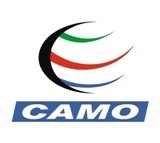
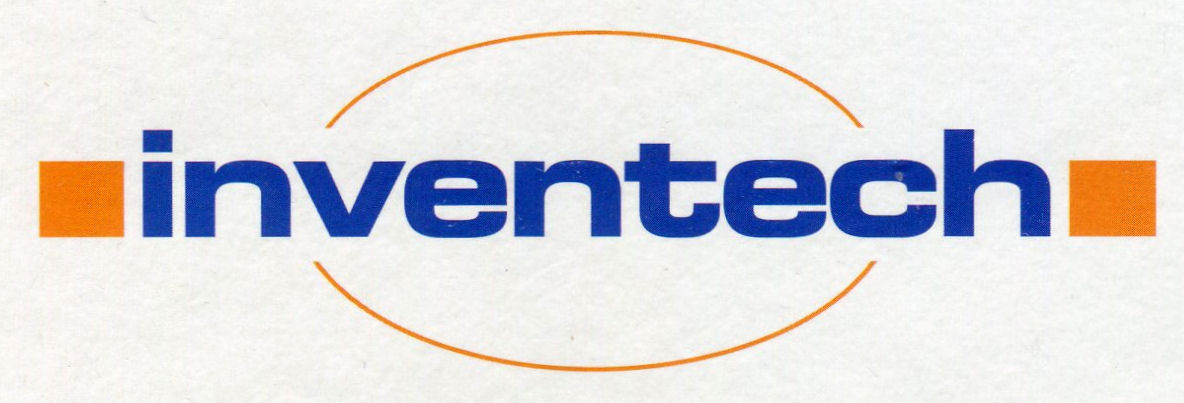
![]()

On behalf of the organizing committee we are looking forward meeting you in Utrecht,
Jeroen Jansen (Radboud University, Nijmegen)
Gerben Mooiweer (JDE Utrecht)
Agnieszka Smolinska (Maastricht University)
Lidia Esteve Agelet (Mars Inc.)
Jan Gerretzen (AkzoNobel Specialty Chemicals)
Jos Hageman (Biometris, Wageningen University & Research)
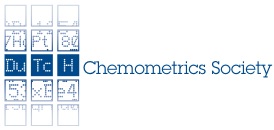
DCS Events
Archive 2017:
7th International Chemometrics Research Meeting
ICRM2017
September 10th - 14th 2017
Fletcher Parkhotel Val Monte
Berg en Dal, The Netherlands
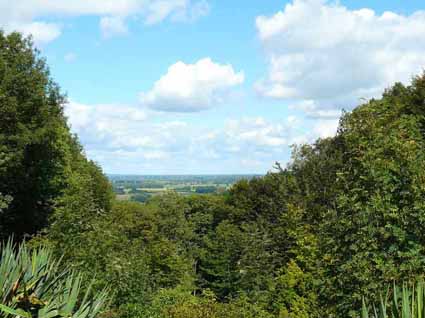
The International Chemometrics Research Meeting is organized every three years (by the Dutch Chemometrics Society). It is dedicated to in-depth discussion of recent chemometric and statistical developments that are relevant to analytical chemistry and is applications. The format of the meeting is inspired by the Gordon conferences: two sessions per day (one in the morning and one in the evening), with an invited speaker, a discussant and lots of room for the floor discussion.
Participants can bring posters and there is room for a small number of contributed talks.
New this time are 4 short tutorials, on ASCA, PCA/PLS, penalties and on MCR. The tutorials take place in the afternoons. They do not overlap and attendance is free for conferences participants.
A social program and conference dinner is also part of ICRM2017.
The following invited speakers will give a keynote lecture:
- Peter Wentzell (Dalhousie University, Halifax, Canada).
- Lieven De Lathauwer (KU Leuven, Belgium).
- Peter Filzmoser (TU Wien, Austria)
- Morten Rasmussen (University of Copenhagen, Denmark)
- Marieke Timmerman (RU Groningen, The Netherlands)
- Onno de Noord (Shell Amsterdam, The Netherlands)
- TBA
This is a first announcement. More information about registration and the conference fee will follow soon.
Archive: ACS 2016
30th Annual Chemometrics Symposium
“Chemometrics in Action”
Thursday 13th October 2016, Ravenstein, The Netherlands
The Dutch Chemometrics Society cordially invites you to its Annual Chemometrics Symposium. This year the theme is “Chemometrics in Action” with a focus on practical applications. Six speakers will cover a variety of subjects. During the lunch a microNIR spectrophotometer will be demonstrated.
As usual, this symposium will be an excellent opportunity to meet old and new colleagues, to learn new things and to discuss them in an informal and friendly atmosphere.
Speakers with their presentation titles
• Rudolf Kessler
“Perspectives in Process Analysis: Remarks on Robustness of Spectroscopic Methods
for Industrial Applications
• Jan Gerretzen
“A novel and effective way for preprocessing selection based on Design of Experiments”.
• Andrei Barcaru
“Thinking Bayes: creating new ways of interpreting GCxGC(-MS) data”.
• Cyril Ruckebusch
“Chemometric analysis of chemical images”.
• Olga Lushchikova
“Development of alarm system for water quality control based on flow cytometry data
of algal populations”.
• Ewoud van Velzen
"Robustness: A key parameter in the validation of multivariate sensory regression
models”.
Abstracts of the presentations can be found here.
The booklet with the program of the symposium day can be viewed and downloaded too. Please be aware that you receive a printed copy of this program booklet when you attend the symposium. Please click on Program booklet ACS2016.pdf
Location
The meeting will take place in Vergader- en Conferentiecentrum Soeterbeeck, Elleboogstraat 2, 5371 LL Ravenstein See www.ru.nl/soeterbeeck/ for a description and how to get there.
Time
Registration and coffee between 9:15 and 10:00, opening symposium at 10:10.
Fee
The registration fee is 100 euros (50 for students and PhD students). Everything is included: participation in the meetings, lunch, refreshments and drinks at the end of the day. It is not possible to register for a half-day at a reduced price.
Language
The official language of the symposium will be English.
Posters
Participants are invited to share their work during the poster session that will take place during the lunch break. A poster prize (100€) will be awarded to the best poster. If you want to submit a poster, send an e-mail before 1st October with title and abstract to
Demo
During the lunch break a demonstration will be given of the microNIR.
How to register
Reply to this e-mail with your name, address and affiliation or send this information to the Dutch Chemometrics Society e-mail address
Flyer
Use this link to download the flyer of this symposium: Flyer_DCS_ACS2016.pdf
Sponsors




![]()

On behalf of the organizing committee we are looking forward meeting you in Ravenstein,
Paul Eilers, Erasmus MC Rotterdam.
Gerben Mooiweer, JDEcoffee/R&D, Utrecht.
Bülent Üstün, Aspen Oss BV, Oss.
Jeroen Jansen, Radboud University Nijmegen.
Jos Hageman, Biometris, Wageningen University.
Theo Reijmers, Kinesis Pharma, Breda.


